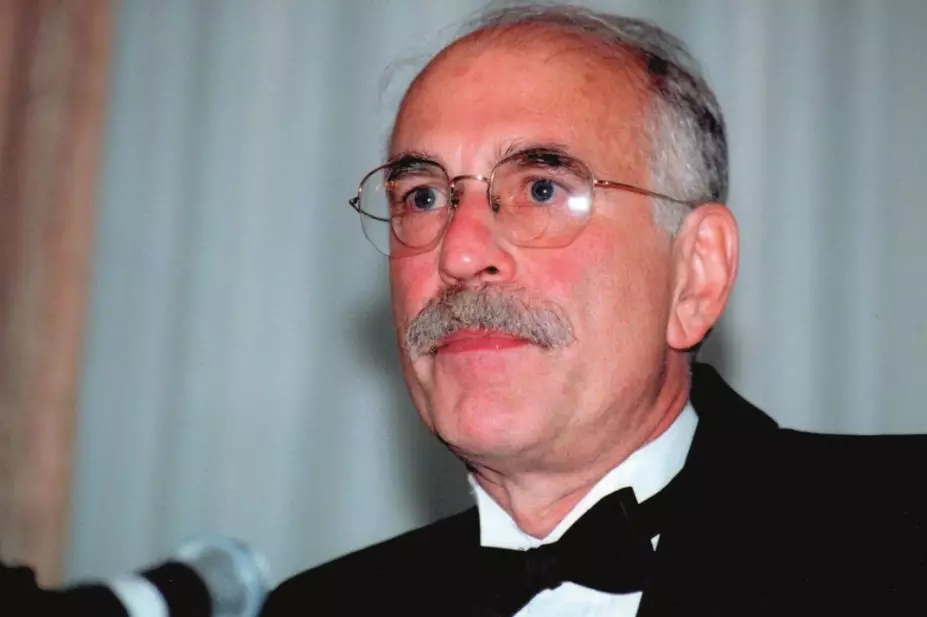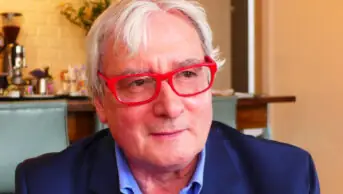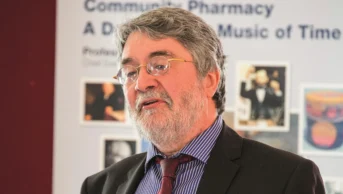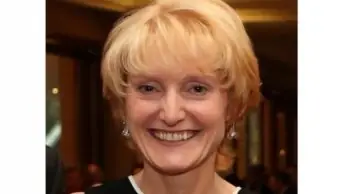
Elaine Majerus
Philip Majerus, emeritus professor of medicine at Washington University School of Medicine, St Louis, where he worked for almost 40 years, died of prostate cancer on 8 June 2016, aged 79. He established the role of aspirin in the prevention of heart attacks and strokes and later proposed a daily dose for all adults. In 1998, he was given the Bristol-Myers Squibb award for his work demonstrating the critical role of platelets in thrombosis.
“Dr Majerus first proposed and proved that low dose aspirin could be used to treat people at risk of heart attack, stroke and other thrombotic events — a regimen that now saves hundreds of thousands of lives each year,” said the citation.
Majerus credited the Vietnam War for his entry into biochemistry.
“As I was finishing my medical residency at Massachusetts General Hospital in 1963, I had two choices: either I could go to Vietnam as a physician, or I could become a research associate at the United States Public Health Service at the National Institutes of Health. The choice was easy,” he recalled in 2011[1]
.
Majerus was born in Chicago in July 1936, the son of Clarence Majerus, who owned a shop in Quincy, Illinois, and Helen Mathis. He received a bachelor of science degree from the University of Notre Dame in 1958, and then graduated from Washington University School of Medicine, where he joined the faculty of medicine in 1966.
His research work focused on blood clots and his work on aspirin demonstrated that platelets played an active part in clotting.
In 1978, with his colleague postdoctoral fellow Jerry Roth, he decided to do a randomised controlled trial to determine if low doses of aspirin could prevent thrombosis in humans.
“Late one afternoon I looked in the St Louis phone directory for aspirin and found a company in town, Rexall, that made aspirin tablets. I called after hours and a man answered the phone. I explained I wanted 100 bottles of 100 tablets containing 160mg of aspirin and the same number of bottles of 100 tablets of a matched placebo. He delivered them to my lab the next morning with no charge,” Majerus recalled in 2014[2]
.
The study lasted six months and revealed 18 of the 25 patients in the placebo group had experienced a thrombosis, compared with 6 of the 19 patients in the treated group. Furthermore, larger studies confirmed the results.
In 1989, the results of a randomised controlled trial involving 22,071 physicians testing the impact of low dose aspirin on the prevention of heart attacks showed a 44% reduction of risk among the treated group[3]
. But Majerus had refused to participate in the study.
“I was already convinced that aspirin prevented heart attacks and was taking aspirin daily. I was unwilling to be randomised into a trial where I might end up with the placebo,” he said.
Reviewing the evidence for aspirin in cancer treatment, as well as safeguarding against strokes and heart attacks in 2014, Majerus said: “The drug is extraordinary and beneficial in myriad ways.
“Every adult, with few exceptions, should take one 325mg aspirin tablet each day.”
But since the drug was cheap and sold over the counter its benefits were easily underestimated, he argued[2]
.
Stuart Kornfeld, professor of medicine at the Washington University School of Medicine, who was co-director of the department of haematology with Majerus for several years, said: “Phil was a brilliant physician-scientist whose research had a major impact on how we practise medicine today. But equally as important, Phil inspired generations of students with his enthusiasm, straight talk and the rigour of his work.”
Majerus was a firm advocate of mentoring and of senior investigators remaining closely involved in all research, partly as a defence against fraud. If an investigator does not have the time to participate in an investigation on a day-to-day basis, he should disassociate himself from it, he said in his presidential address to the American Society for Clinical Investigation in 1982[4]
. “The contribution of the senior investigator in such cases is miniscule. It’s rather like claiming credit for writing Hamlet because you furnished Shakespeare with a pencil,” he warned.
A past president of the American Society of Hematology, Majerus was a member of the National Academy of Sciences, the Institute of Medicine and the American Academy of Arts and Sciences. ‘The molecular basis for blood diseases’, the book he co-edited with five others, is now in its third edition.
He is survived by his wife, Elaine Majerus, associate professor of medicine at Washington University, and three daughters and a son from his first marriage to Janet Brakensiek, which ended in divorce.
References
[1] Majerus PW. Wandering through the Laboratory. J Biol Chem 2011;286:4941–4945.
[2] Majerus PW. An aspirin a day. Advances in Biological Regulation 2014;54:231–241.
[3] Steering Committee of the Physicians’ Health Study Research Group. Final report on the aspirin component of the ongoing physicians’ health study. N Engl J Med 1989;321:129–135.
[4] Majerus PW. Fraud in medical research. J Clin Invest 1982;70:213–217.
You may also be interested in

Bill Scott OBE (1949–2025)

David Taylor (1946–2025)
